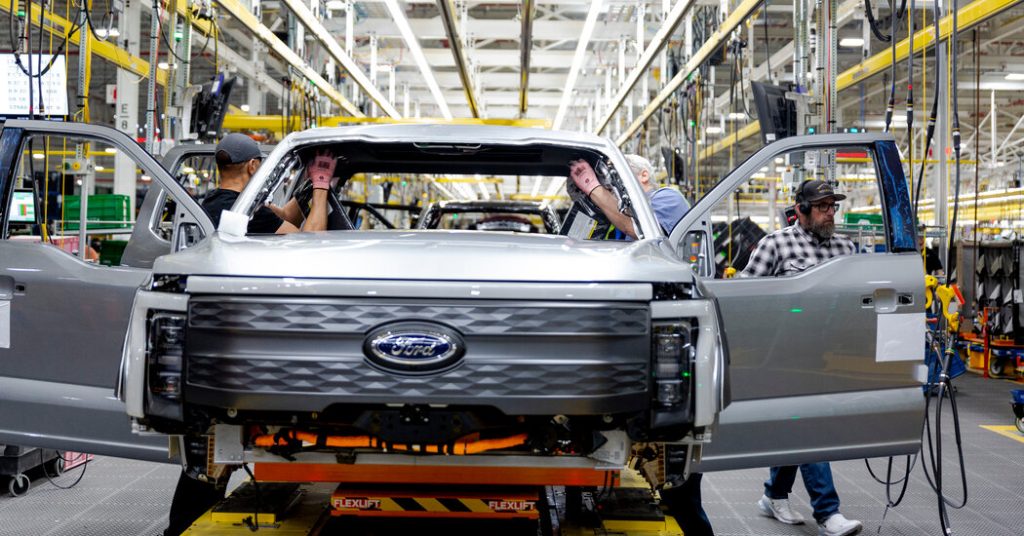Ford Motor announced on Thursday that it would delay the production of at least two new electric cars and shift its focus to making more hybrids. The decision, along with similar moves by other automakers like General Motors and Mercedes-Benz, reflects the challenges large automakers are facing in making and selling electric cars profitably. Sales of electric vehicles have been slowing, as companies struggle to lower costs and produce more affordable models that appeal to a wider range of consumers. This shift in strategy suggests that automakers are rethinking their approach to electric vehicles as they navigate a changing market.
Many consumers are hesitant to buy electric cars due to concerns about charging infrastructure and cost. Some buyers are opting for hybrid cars instead, which offer better fuel economy and are easier to integrate into their daily lives. Ford announced plans to offer a hybrid version of every model it sells by the end of the decade, with existing hybrid options already available for models like the Maverick, F-150, and Escape. This pivot towards hybrids reflects a broader trend in the industry as automakers seek to meet consumer demand for more fuel-efficient options.
Ford revealed that it would delay the production of new electric vehicles, such as a large electric SUV and an electric pickup truck, due to challenges in scaling a profitable electric vehicle business. The company’s CEO, Jim Farley, emphasized the importance of bringing the right mix of gas, hybrid, and fully electric vehicles to market at the right time, highlighting Ford’s commitment to sustainability and profitability in the evolving automotive landscape. This delay in production reflects the complex economic and logistical considerations that automakers are grappling with as they navigate the transition to electric vehicles.
The slowdown in electric vehicle sales has also impacted Tesla, the leading maker of electric models in the United States. Despite an 86 percent growth in electric vehicle sales for Ford in the first quarter of the year, the overall numbers fell below expectations, prompting the company to reduce prices. As consumer demand for electric vehicles fluctuates, automakers like Ford and G.M. are adjusting their production targets and strategies to align with market trends. This adaptability is crucial for automakers to stay competitive and maintain profitability in a rapidly changing industry.
In recent years, major automakers had ambitious plans to introduce dozens of new electric cars and trucks, anticipating a rapid shift from gasoline-powered vehicles to electric ones. However, a significant slowdown in electric vehicle sales in the second half of 2023 has forced manufacturers to reevaluate their projections and scale back their ambitions. This adjustment reflects the challenges in balancing innovation, sustainability, and profitability in the automotive sector. Ford’s electric vehicle division reported losses last year, while its gasoline and hybrid vehicle division remained profitable, underscoring the complexity of transitioning to electric vehicles while maintaining financial stability.
Overall, the shift towards hybrids and the delay in electric vehicle production by Ford and other automakers indicate the intricacies of the electric vehicle market and the need for flexibility in response to changing consumer preferences and economic realities. As the industry continues to evolve, automakers will need to navigate challenges like charging infrastructure, consumer acceptance, and market demand to create a sustainable and profitable electric vehicle business. The transition to electric vehicles presents both opportunities and challenges for automakers as they strive to meet environmental goals, consumer expectations, and financial targets in a rapidly changing automotive landscape.


